|
Formwork or forms are used to retain concrete in place until it gains sufficient strength to support itself. Concrete walls and columns require formwork. Elevated concrete slabs require forms and support work to hold the concrete while it gains strength. The edges of slabs and beams require forms. Often to reach elevated areas contractors construct access scaffolding. In fact formwork and scaffolding are an integral part of many construction projects. Formwork and support work should be designed to ensure it will be strong enough to withstand and carry the weight of wet concrete, reinforcing, cast-in items, and the people and equipment used to place the concrete. The design normally assumes a rate of pour, and if this rate is exceeded it could lead to overloading of the formwork. Also materials should not be heaped on formwork, or scaffolding, since this could result in the equipment carrying a load it was not designed for. Case study: I was the Project Director on a project that involved constructing a reinforced concrete slab, two metres thick, and eight metres above an operational railway line which the supporting scaffold had to span. The support-work was designed by our Formwork Design Engineer, who also produced detailed drawings of how the support-work should be constructed. The quantity of equipment was ordered from these drawings. There was a full-time Project Manager allocated to the project, and at the time, I was responsible for five other projects, situated hundreds of kilometres apart, so I visited the project approximately every two weeks. The day before the concrete slab was due to be poured I visited another project, and at the last minute decided to make a detour on my homeward journey to check the slab was ready for the concrete. On arriving on the project site I was informed the slab was ready to receive concrete, however, I noticed a number of steel beams that had been ordered were lying unused on the ground. I queried this, and was informed the Supervisor had decided the beams were superfluous and omitted them. I contacted the Formwork Design Engineer, and explained my concerns. He immediately checked his calculations, and called me back to say he had major concerns, and was on his way to the site – some 200 kilometres from his office. When our Engineer arrived and inspected the support-work, he found the omission of the support beams meant the load of the wet concrete on the slab would not have been distributed evenly, and would have resulted in some of the scaffold support legs carrying double their load capacities. To compound the error, the Engineer found a mistake with his original calculations, which would have anyway resulted in the legs carrying an extra 20% over their capacity. This additional 20%, together with the doubling of the load, would have resulted in some scaffold legs carrying nearly two and a half times the load they were capable of carrying. If we had gone ahead with placing the concrete on the slab there is no doubt the support-work would have failed with catastrophic results, people would probably have been killed and others seriously injured, the railway would have been closed for weeks, the project would have been delayed by months, and there would have been costly property damage. As a result we postponed the concrete pour until we were able to install additional support-work to carry the load, ensuring none of the scaffold was over-loaded. There are several lessons from the above:
ConclusionFormwork that is not designed and installed correctly can result in accidents, poor quality, lost time, and even serious injury and death. Construction project managers and supervisors must ensure that formwork and access scaffolding is not damaged, which results in additional costs, and can also weaken the equipment. Never take a chance or shortcuts when installing formwork and access scaffold. Using the correct formwork installed with qualified and trained people will improve productivity and quality, while ensuring that the construction work is done safely. #constructionmanagement #formwork #scaffolding Do you want to learn how to manage construction projects successfullyTo read more about the author’s books and find out where you can purchase them visit the pages on this website by clicking the links below:
'Successful Construction Project Management: The Practical Guide' 'Building a Successful Construction Company: The Practical Guide' 'Construction Book reviews' To read more about the author visit the page 'Paul Netscher' Want to contact Paul Netscher please enter your details on 'Contacts' Find out how Paul Netscher can help you by visiting Construction Management Services Order your books from Amazon Order your books from Amazon UK © 2022 This article is not to be reproduced for commercial purposes without written permission from the author.
9 Comments
In some countries the construction industry closes over the Christmas and New Year holidays. Last week I published an article ‘is your project holiday ready?’ Judging by comments some projects will be working through the holidays. I’ve often worked an extra week into the holidays, always with limited results. Some clients are eager to push their contractors to work on holidays but don’t realise the implications. In some countries holidays may not be celebrated now, but later in the year. Whenever you may have a holiday period you will almost definitely face challenges getting your project to continue working through the holidays. Why it is not good when construction projects work through the holidaysHere are a few reasons why I don’t like working through holiday periods.
If your construction project must work through the holidays be preparedIf you absolutely have to work the project through the holidays then consider the following:
Conclusion Working over the holidays is often counterproductive, costs money and often achieves little. However, if you have to work it is best to be prepared so that you maximise productivity and aren’t adversely impacted by factors that could have been avoided if proper planning was done before hand. Don’t let working through holidays become a habit or a norm. Plan your projects to take holidays into account. Happy holidays. Like this article – please comment, like and share it. #constructionmanagement #constructionprojectmanagement #contractors © 2015 This article is not to be reproduced for commercial purposes without written permission from the author. Other useful articles Don't let overtime on your construction project eat your PROFITS after the holidays - what will happen on your construction project? Why is there poor productivity on your construction project? Do you want to learn how to manage construction projects successfullyA reader on Amazon said: "Very easy to read and understand. Experience counts a lot towards a successful project. I'm still learning and studying Project Management courses but to have someone with a wealth of knowledge and experience share their understanding and experience really helps you along the way. A great book to have as a reference guide too." As an Amazon Associate I earn from qualifying purchases Paul Netscher has written several easy to read books for owners, contractors, construction managers, construction supervisors and foremen. They cover all aspects of construction management and are filled with tips and insights.
Visit to read more. The books are available in paper and ebook from most online stores including Amazon. It’s that time of the year again. All too soon we have reached the end of another year. Many contractors close down over the holidays and staff will be eagerly anticipating their own holidays. Time to spend with their families. Time to get away from work. Hopefully time to rest, relax and recuperate after a year of hard work. As the holidays approach construction project managers and the rest of the team start focusing on their own holidays. This includes arrangements for their vacations including booking accommodation and flights and preparing for the festivities. But is your construction project site ready for the holidays? Preparing Your Construction Project For The HolidaysWhat you need to do Usually preparing the construction project for the holidays should start several weeks before the start of the holidays. These preparations could comprise ensuring:
Not Preparing Your Construction Project Could Spoil Your HolidayAdequate preparation should mean you can return to the project after the holidays without having to face a crisis immediately on your return.
Happy holidays. Like this article – please comment, like and share it. To read more about the author’s books and find out where you can purchase them visit the pages on this website by clicking the links below: 'Successful Construction Project Management: The Practical Guide' 'Building a Successful Construction Company: The Practical Guide' 'Construction Book reviews' To read more about the author visit the page 'Paul Netscher' Want to contact Paul Netscher please enter your details on 'Contacts' Find out how Paul Netscher can help you by visiting Construction Management Services Order your books from Amazon Order your books from Amazon UK © 2015 This article is not to be reproduced for commercial purposes without written permission from the author. 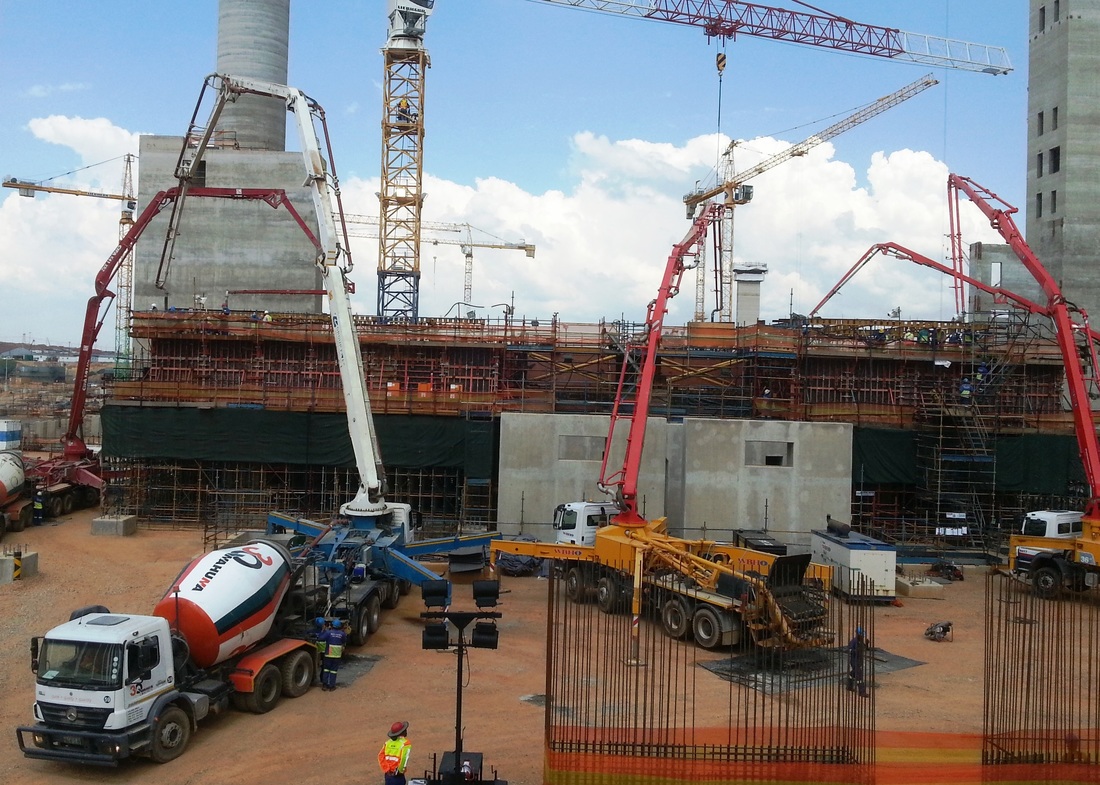 Picture courtesy of Joao Neto Picture courtesy of Joao Neto In a previous article I discussed 10 mistakes that occur in construction schedules or programmes. (Read part 1) These mistakes could mean that the contractor is working to a schedule that is incorrect or unworkable and the project is likely to be completed late. Here are a few more common errors to avoid:
The scheduler or planner should be experienced in preparing construction schedules. The project manager should ensure that the schedule takes into account the conditions on the project site, the available resources and the chosen methodologies. Where necessary the key subcontractors should be consulted to ensure that time allocated to their tasks is sufficient. Preparing the best workable schedule is an art, a science and one that needs expertise and experience. But of course even a good schedule is worthless if it’s not followed or isn’t updated correctly. But this is a discussion on its own which we will discuss in 2016. What mistakes and pitfalls have you experienced with project schedules? To read more about the author’s books and find out where you can purchase them visit the pages on this website by clicking the links below: 'Successful Construction Project Management: The Practical Guide' 'Building a Successful Construction Company: The Practical Guide' 'Construction Book reviews' To read more about the author visit the page 'Paul Netscher' Want to contact Paul Netscher please enter your details on 'Contacts' Find out how Paul Netscher can help you at construction management services Order your books from Amazon Order your books from Amazon UK © 2015 This article is not to be reproduced for commercial purposes without written permission from the author. |
Archives
June 2024
Note: We welcome genuine comments, especially comments that add additional information to the subject matter in the article. We however reserve the right to remove inappropriate comments, which includes comments that have nothing to do with the subject, comments that include inappropriate language, and comments that are an advertisement for a product or company, or which include an advertising link. Comments must be in English. We will not enter into discussion on why a particular comment was removed.
CategoriesCopyright 2016 - The attached articles cannot be reproduced for commercial purposes without the consent of the author.
The opinions expressed in the attached articles are those of the writer. It should be noted that projects are varied and different laws and restrictions apply which depend on the location of the contractor and the project. It's important that the reader uses the supplied information taking cognisance of their particular circumstances. The writer assumes no responsibility or liability for any loss of any kind arising from the reader using the information or advice contained herein. "I have what I consider some of the best books on construction management."
Books are available from: Amazon.com Amazon.co.uk takealot.com kalahari.com Amazon.in Amazon.de Amazon.fr Amazon.it Amazon.com.au Powell's Fishpond uread bokus Amazon.ca Amazon.es Other retail stores Available in paperback or on Kindle "28 YEARS OF CONSTRUCTION PROJECT MANAGEMENT EXPERIENCE, DEVELOPING SUCCESSFUL CONSTRUCTION PROJECT MANAGERS AND BUILDING SUCCESSFUL CONSTRUCTION COMPANIES"
|


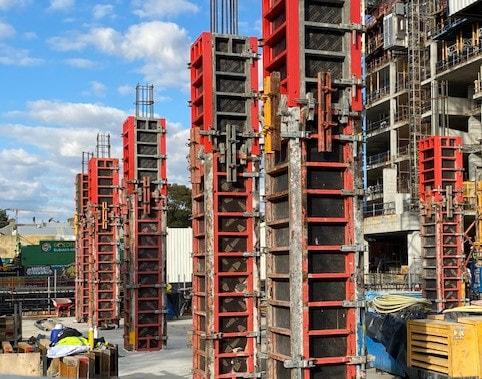





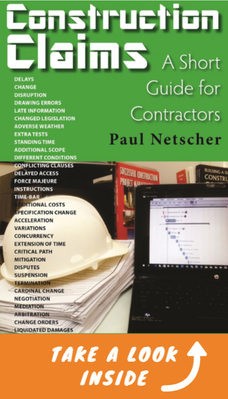
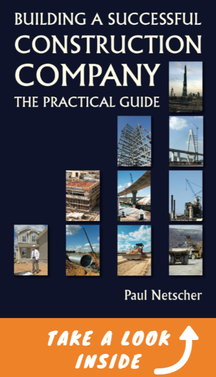

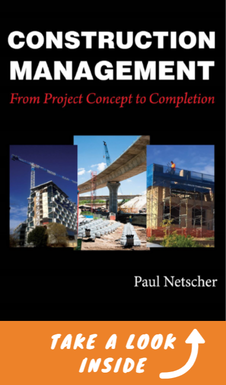


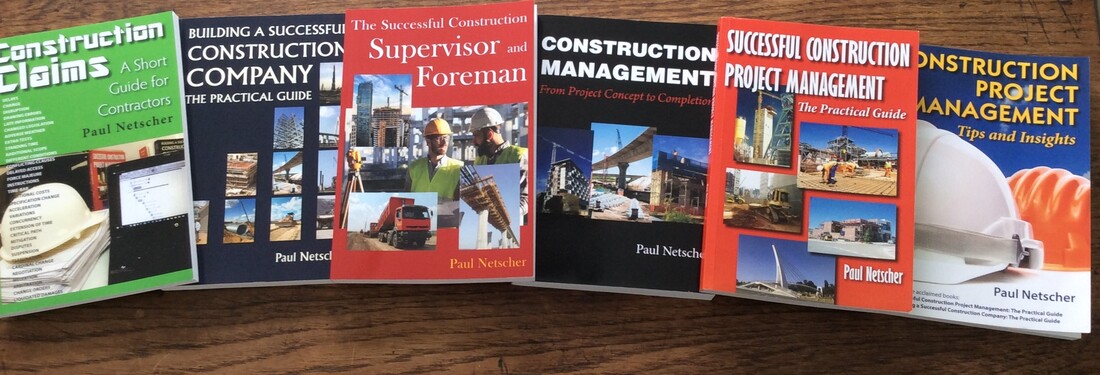


 RSS Feed
RSS Feed




